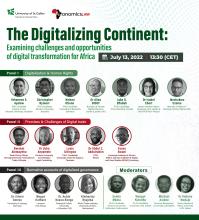Heralding Privacy concerns in AfCFTA’s proposed E-commerce Protocol
With the growth of e-commerce, a core human right concern pervading this “novel” form of trade is the right to privacy. This article makes a case for recognising privacy and its derivative, data protection in the AfCFTA’s E-Commerce Protocol and subsequent e-commerce-related agreements concluded by Africa’s Regional Economic Communities (RECs) and states members.
